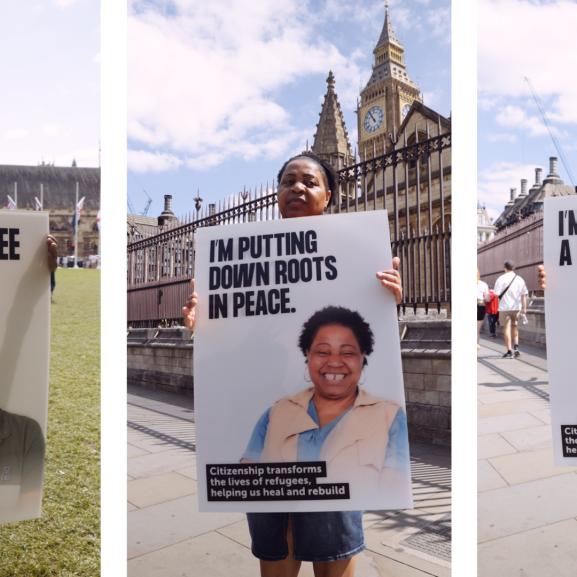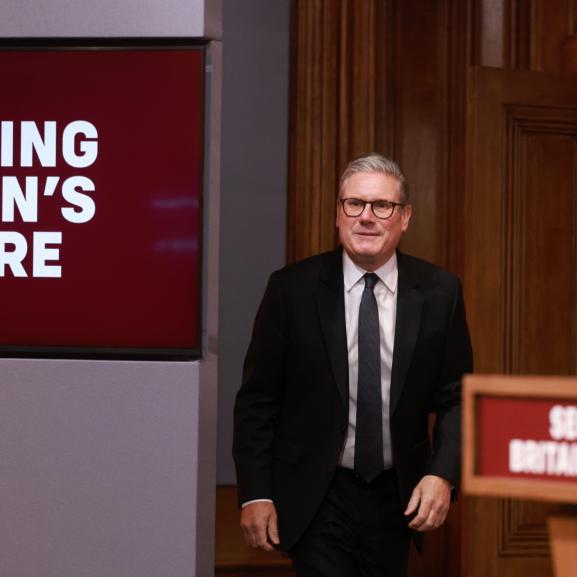Report from the Conservative Party Conference
By Ann Hannah, Head of International Advocacy
As many others have reported, this year’s Conservative Party conference was markedly different to last year’s in its tone. There was far less hysteria around the future of the UK, and I was pleased to observe what felt like a much calmer discussion on what immigration provisions might work for the UK.
Policy discussions on immigration were more likely to separate out migration and refugee issues. Previously these issues appeared to be being deliberately or accidentally muddled together in a way that confused discussions.
However it was also notable that very little time was given to discussion on what the UK’s policy and/or approach will be to asylum and refugees, and certainly no reassurance that the “hostile environment” policies, making life in the UK very difficult for vulnerable migrants, wouldn’t be increased.
It was also notable that very little time was given to discussion on what the UK’s policy and/or approach will be to asylum and refugees, and certainly no reassurance that the “hostile environment” policies, making life in the UK very difficult for vulnerable migrants, wouldn’t be increased.
Rory Stewart, currently a joint minister for the Foreign and Commonwealth Office and the Department for International Development, spoke about a “revolution in the way we respond to refugees”, referring to policies which support refugee empowerment and economic participation, but this was focused on refugees who have remained in the region of their country of origin and not those who have made the dangerous journey to the UK or other European countries for their safety.
One area under discussion was the imbalance between mental and physical health provision. In a session titled “Tackling Injustices” Dr Ben Spencer, a psychiatrist who stood as a candidate in the last election and was billed as the “next generation of Conservatives”, spoke passionately about the fact that mental illness doesn’t discriminate and that stigma, isolation and misery all need to be addressed more effectively by health policy and provision.
Like many others across the country, the survivors of torture we work with struggle to access the mental health support they desperately need – even after they have been referred to a specialist organisation like ours. Recent changes to regulations concerning the provision of community mental health services will make this even harder, so we hope the government responds positively to these concerns.
The rhetoric around human rights was also less negative than in previous years, with one notable exception. Defence Secretary Michael Fallon made a jingoistic speech on his work to close down the Iraq Historic Investigations Team, and end litigation against British soldiers, with a suggestion that this would be an end to the investigation of abuses which could end up damaging the UK’s reputation as an upholder of human rights.
The rhetoric around human rights was also less negative than in previous years, with one notable exception. Defence Secretary Michael Fallon made a jingoistic speech on his work to close down the Iraq Historic Investigations Team, and end litigation against British soldiers, with a suggestion that this would be an end to the investigation of abuses which could end up damaging the UK’s reputation as an upholder of human rights.
However, it was good to hear the Department for International Trade minister Greg Hands confirm that human rights would be part of the trade deal negotiations as Britain forges new agreements around the world. We look forward to seeing this reflected in practice. And Alistair Burt, Foreign Office Minister for the Middle East, spoke at an Amnesty International event about the challenges that we face in protecting the rights secured after the end of World War Two, particularly in light of the complacent attitude that seems to exist about what it would mean to lose those rights.
It was good to hear the Department for International Trade minister Greg Hands confirm that human rights would be part of the trade deal negotiations as Britain forges new agreements around the world. We look forward to seeing this reflected in practice.
It is this complacency that we all need to challenge. With all the talk of British values, it’s essential that they are not lost as the UK sets out a vision for its future place in the world.






